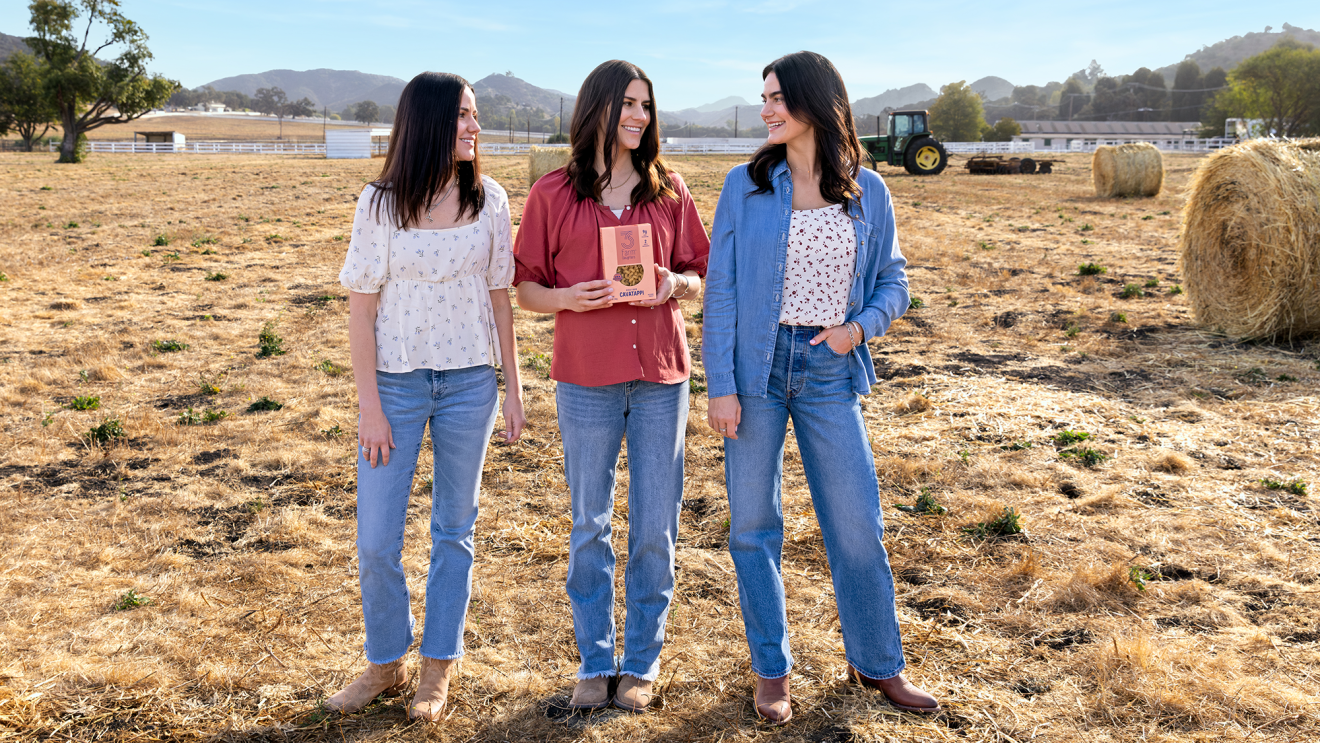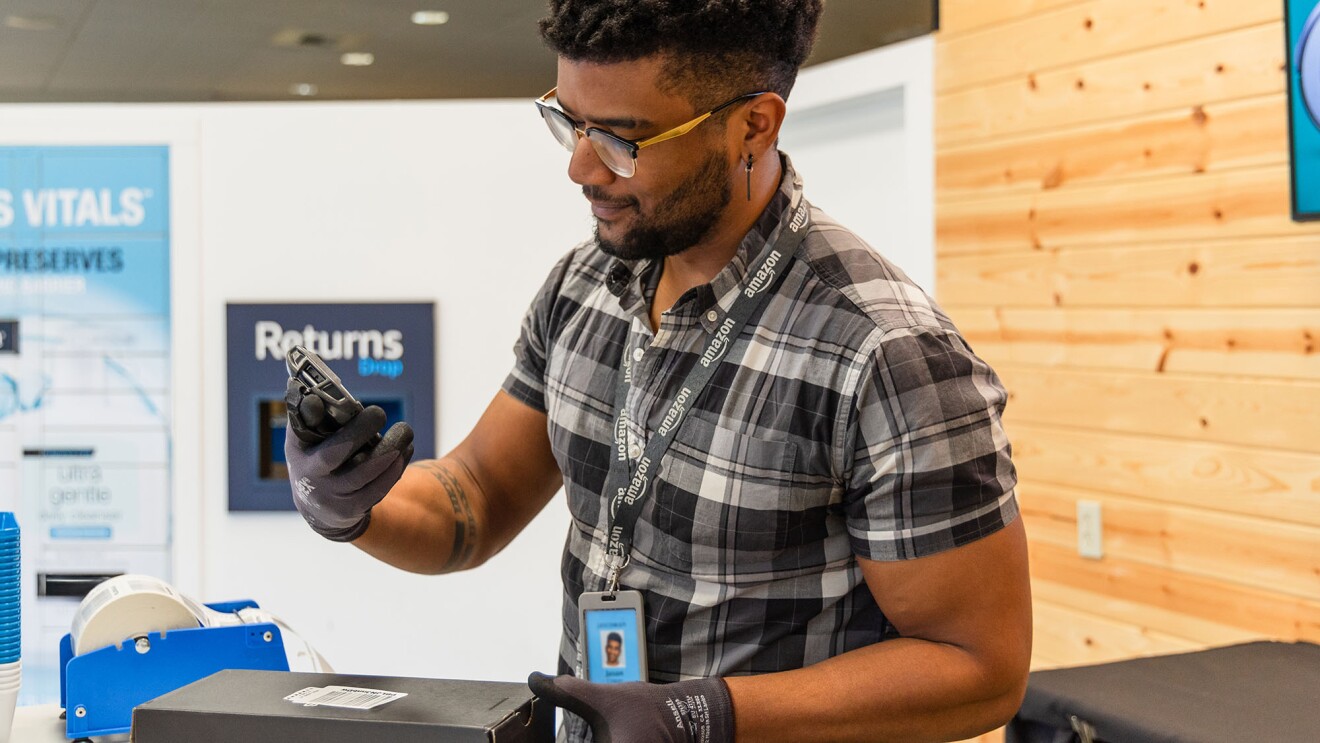Page overview
Key business insights
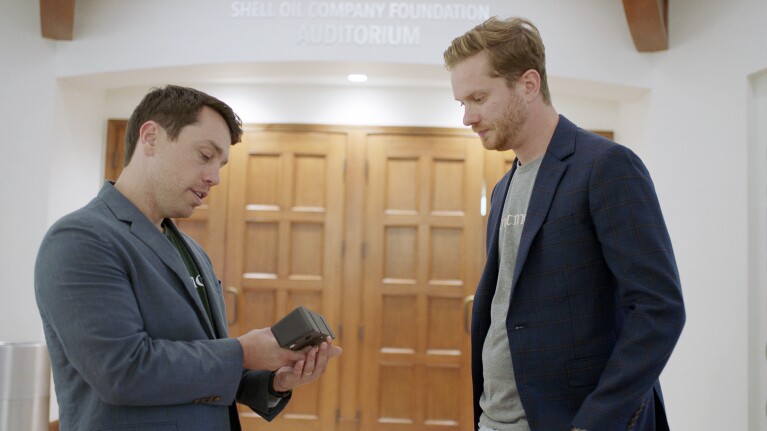 Alex Duncan and Kevin Long from Outmore Living, one of the four teams that the miniseries follows.
Alex Duncan and Kevin Long from Outmore Living, one of the four teams that the miniseries follows.Every episode is filled with valuable lessons that the hosts and competitors are learning as they go. We’ll hear from competitors as they prepare before the competition and check in with them after every round of feedback with judges and investors. We’ll also be hearing from judges, investors, and event organizers as they give us insight to the makings of a successful and outstanding pitch.
“Is this a company into which I and other investors are willing to put our money? I want to see passion from the team. I want to see them on fire and that they are so driven to succeed that I absolutely want to jump along for the ride.” —Mitra Miller, RBPC judge and angel investor
 Julio Fredin and Sloane Tilley from Dia, one of the four teams that the miniseries follows. Photo by Slyworks Photography
Julio Fredin and Sloane Tilley from Dia, one of the four teams that the miniseries follows. Photo by Slyworks PhotographyCompetitors are at Rice University for three days where they have to give 15-minute pitches and a 60-second elevator pitch a number of times. They receive feedback from judges and must implement it within hours before they have to do it all over again. The atmosphere is busy and tense, with limited sleep.
“There were so many forces and stakeholders and actors, and they're probably in competition season, so it's not exactly like this is the only competition. It's like they have competitions on competitions, and they're probably not sleeping that much in general, so everything's happening at one time and you're just really holding onto the wheel trying to survive.” —Mitch Gilbert, CEO of Oya Femtech Apparel, past competitor at RBPC, and This Is Small Business Next Generation co-host
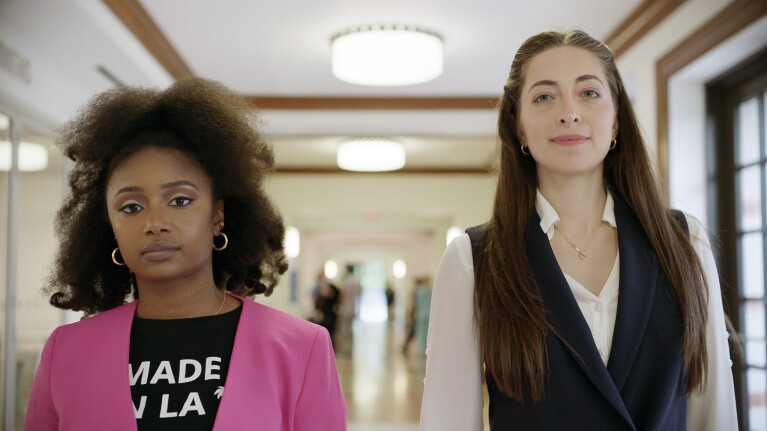 Mitch Gilbert and Andrea Marquez, This Is Small Business Next Generation co-hosts
Mitch Gilbert and Andrea Marquez, This Is Small Business Next Generation co-hostsWe will hear every point of view in the miniseries, from competitors to judges, investors, volunteers, organizers, and past event winner Mitch Gilbert.
“The more I think about the competition, the more I realize it's less about whatever place we get and more about the journey of figuring out our business plan and the process, talking to the mentors that we're going to get connected with, getting the feedback from everyone, and improving our goal. And at the end of the day, bringing this thing to the world … If we could do that, then that's a win.” —Shiv Bhakta, co-founder of Active Surfaces, RBPC competitor
 Shiv Bhakta, Richard Swartwout, and Khalid McCaskill from Active Surfaces, one of the four teams that the miniseries follows. Photo by Slyworks Photography
Shiv Bhakta, Richard Swartwout, and Khalid McCaskill from Active Surfaces, one of the four teams that the miniseries follows. Photo by Slyworks PhotographyCompetitors have a chance to win up to $3 million in prize money with more than 20 additional prizes offered. This amount of money makes a major impact on the the future of the competing startups.
“It's so easy whenever you have so many balls in the air to get overwhelmed and start looking down the road of 'how am I going to get all these things done?'” —Sloane Tilley, CEO of Dia, RBPC competitor
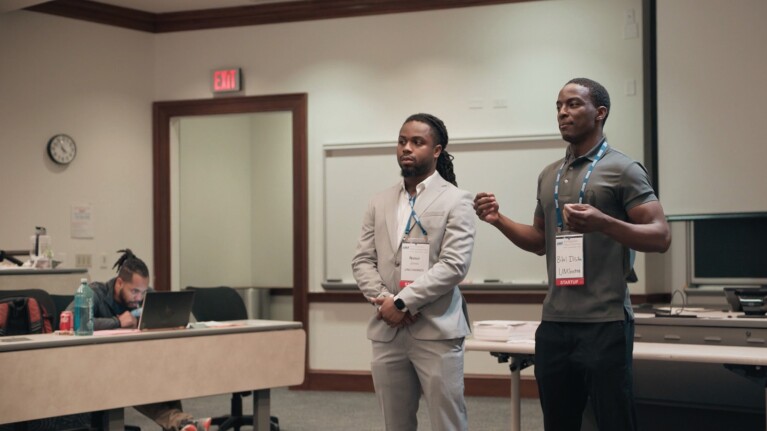 Bilal Issifou from Unchained Inc.,one of the four teams that the miniseries follows
Bilal Issifou from Unchained Inc.,one of the four teams that the miniseries follows The miniseries is a documentary-reality format that digs deep into how the competitors are feeling, the challenges they are facing, and what’s at stake for them and their future.
“I think business school so much focuses on leading a business or being in an existing business, but the act of starting a business is really different. It's doing it alone. It's being a founder. It's taking a leap that's much harder. It's really like the NCAA tournament of business startup competitions. And so, you feel that pressure. And if you're a business owner or a founder, pressure needs to bring out the best in you. You need to find a way to get the nerves down and just be who you are.” —Peter Rodriguez, dean of the Jesse H. Jones Graduate School of Business at Rice University
Trending news and stories
- How Amazon proved its new delivery drone is safe for takeoff
- Amazon’s AI-powered ‘Interests’ feature automatically finds new products that match your passions and hobbies
- Amazon makes it easier for developers and tech enthusiasts to explore Amazon Nova, its advanced Gen AI models
- How to watch ‘Octopus!,’ coming exclusively to Prime Video







